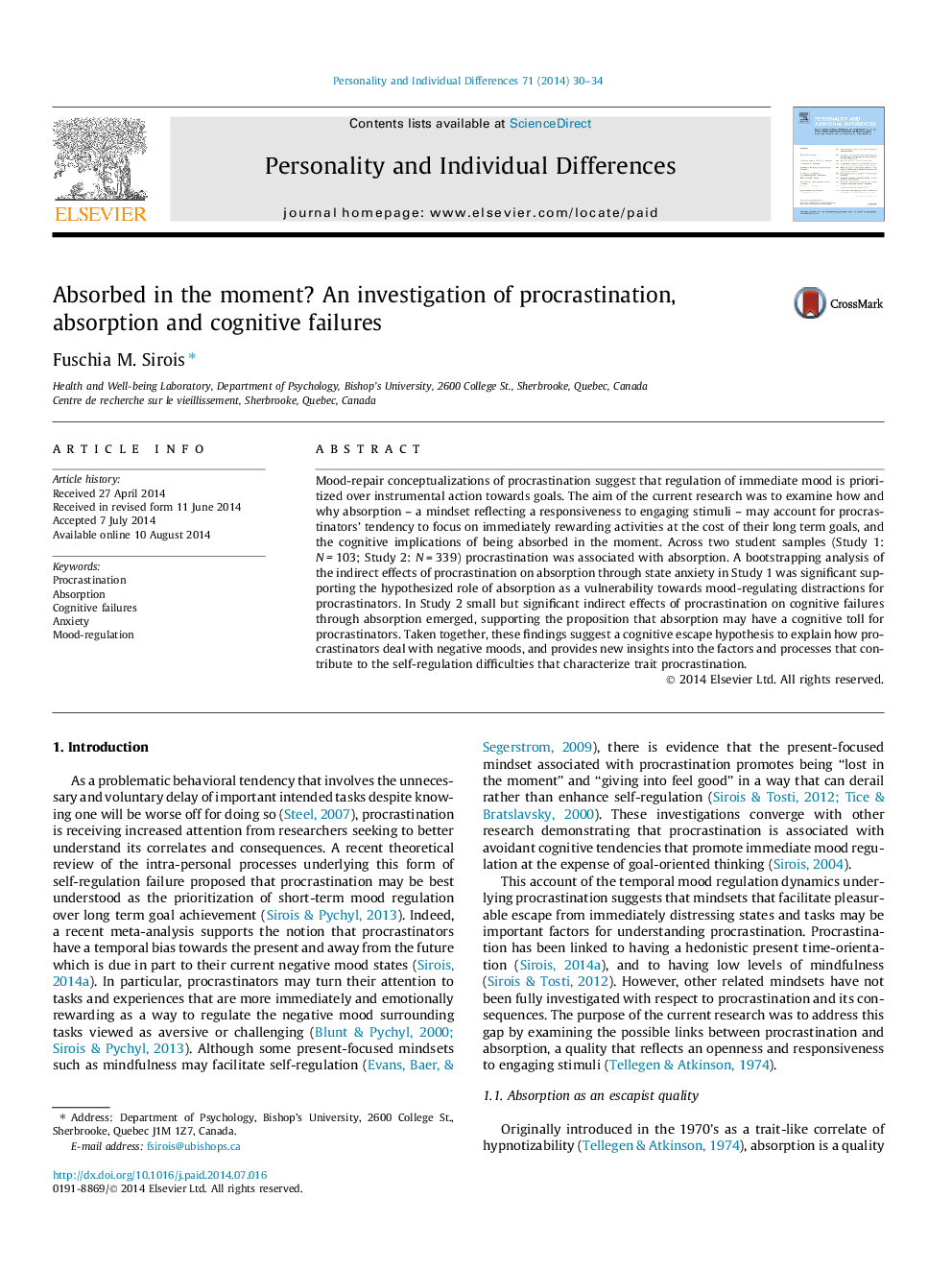| Article ID | Journal | Published Year | Pages | File Type |
|---|---|---|---|---|
| 890361 | Personality and Individual Differences | 2014 | 5 Pages |
•Procrastination is linked to avoidant behaviors for short-term mood regulation.•Absorption was examined as a vulnerability factor procrastinators.•Results indicate that procrastination is linked to absorption via anxiety.•Cognitive failures may be a consequence of absorption for procrastinators.
Mood-repair conceptualizations of procrastination suggest that regulation of immediate mood is prioritized over instrumental action towards goals. The aim of the current research was to examine how and why absorption – a mindset reflecting a responsiveness to engaging stimuli – may account for procrastinators’ tendency to focus on immediately rewarding activities at the cost of their long term goals, and the cognitive implications of being absorbed in the moment. Across two student samples (Study 1: N = 103; Study 2: N = 339) procrastination was associated with absorption. A bootstrapping analysis of the indirect effects of procrastination on absorption through state anxiety in Study 1 was significant supporting the hypothesized role of absorption as a vulnerability towards mood-regulating distractions for procrastinators. In Study 2 small but significant indirect effects of procrastination on cognitive failures through absorption emerged, supporting the proposition that absorption may have a cognitive toll for procrastinators. Taken together, these findings suggest a cognitive escape hypothesis to explain how procrastinators deal with negative moods, and provides new insights into the factors and processes that contribute to the self-regulation difficulties that characterize trait procrastination.
